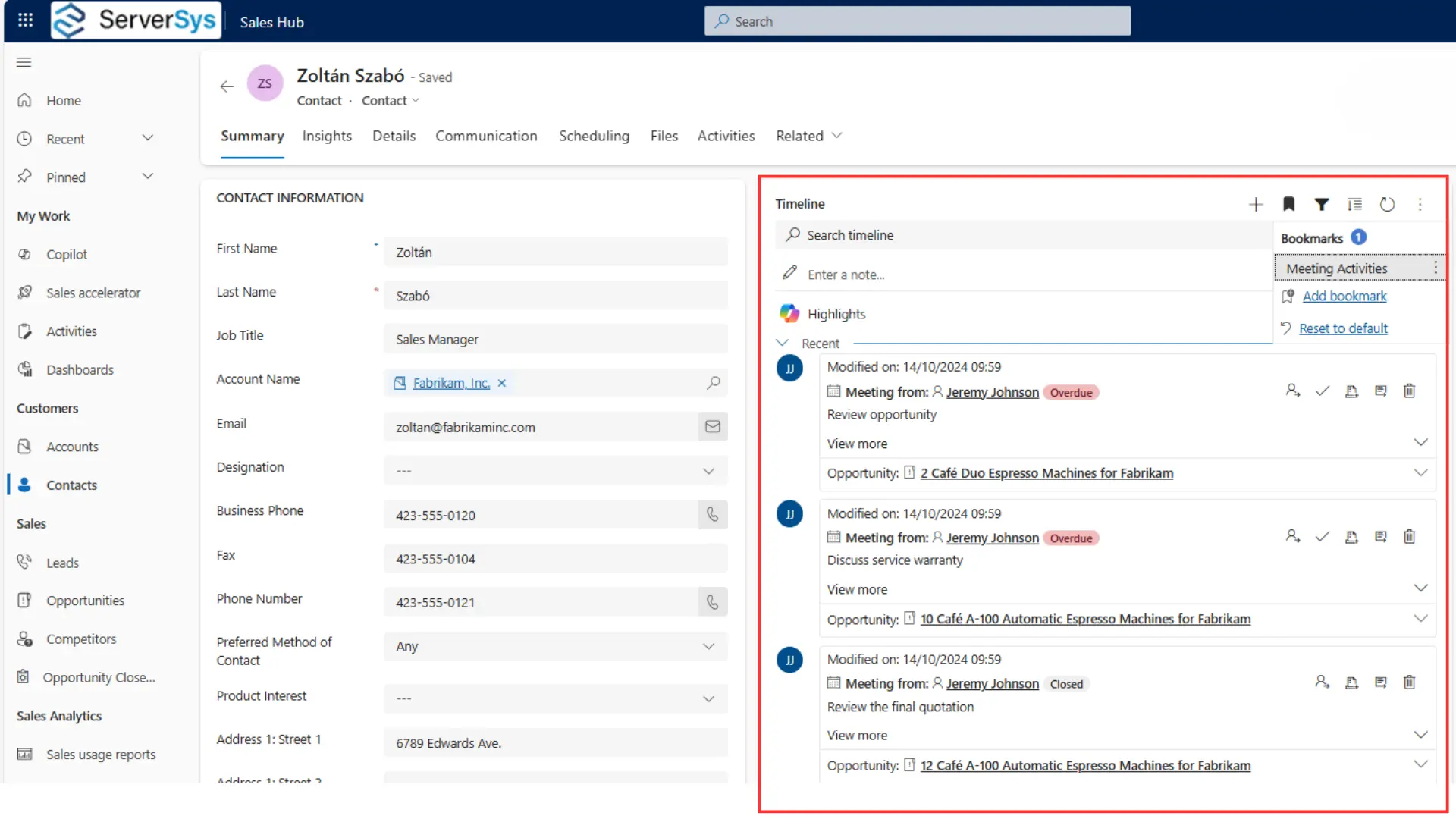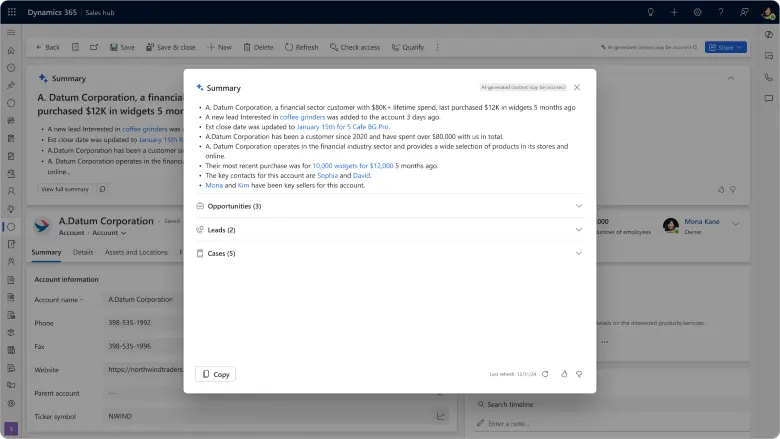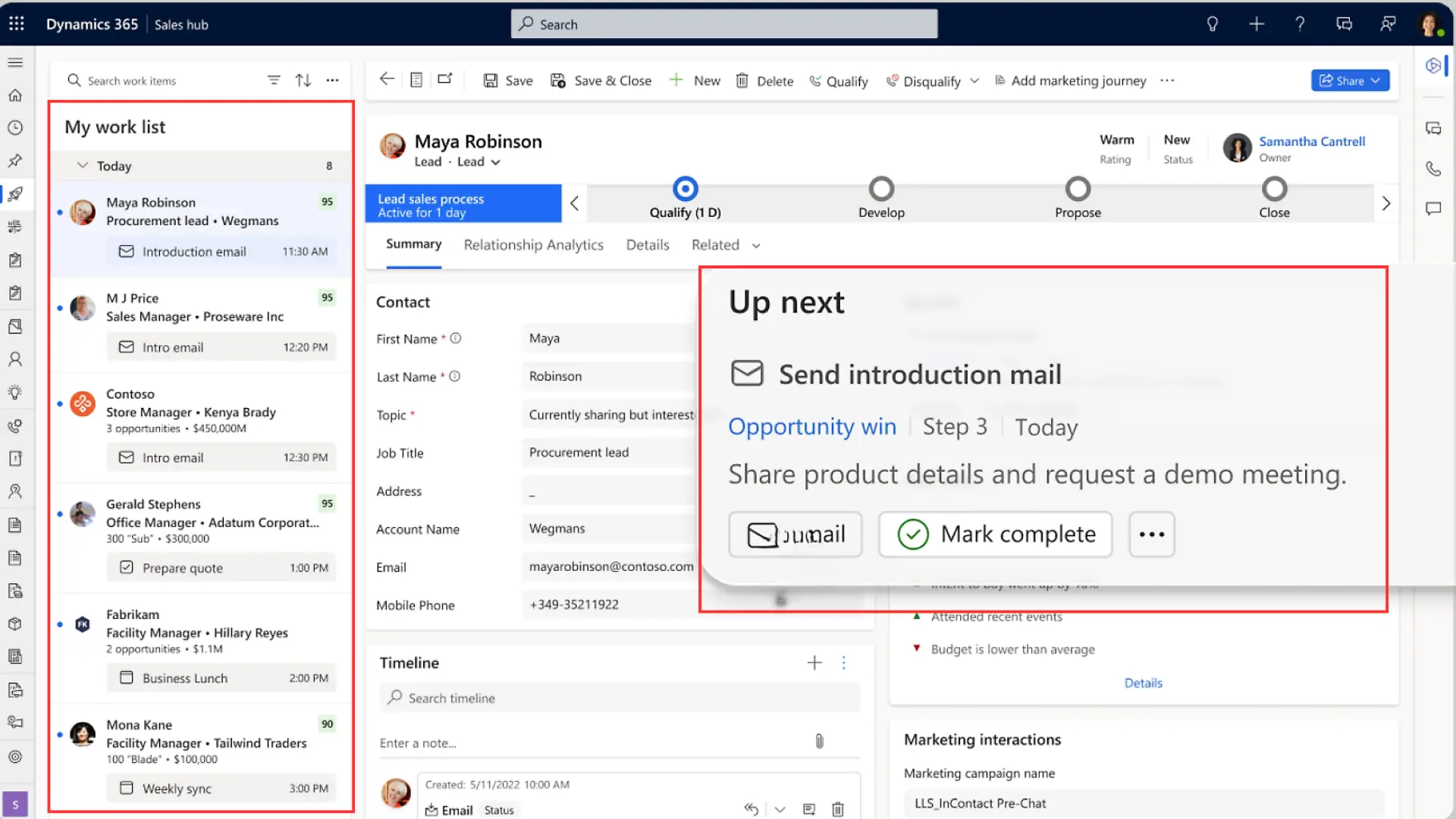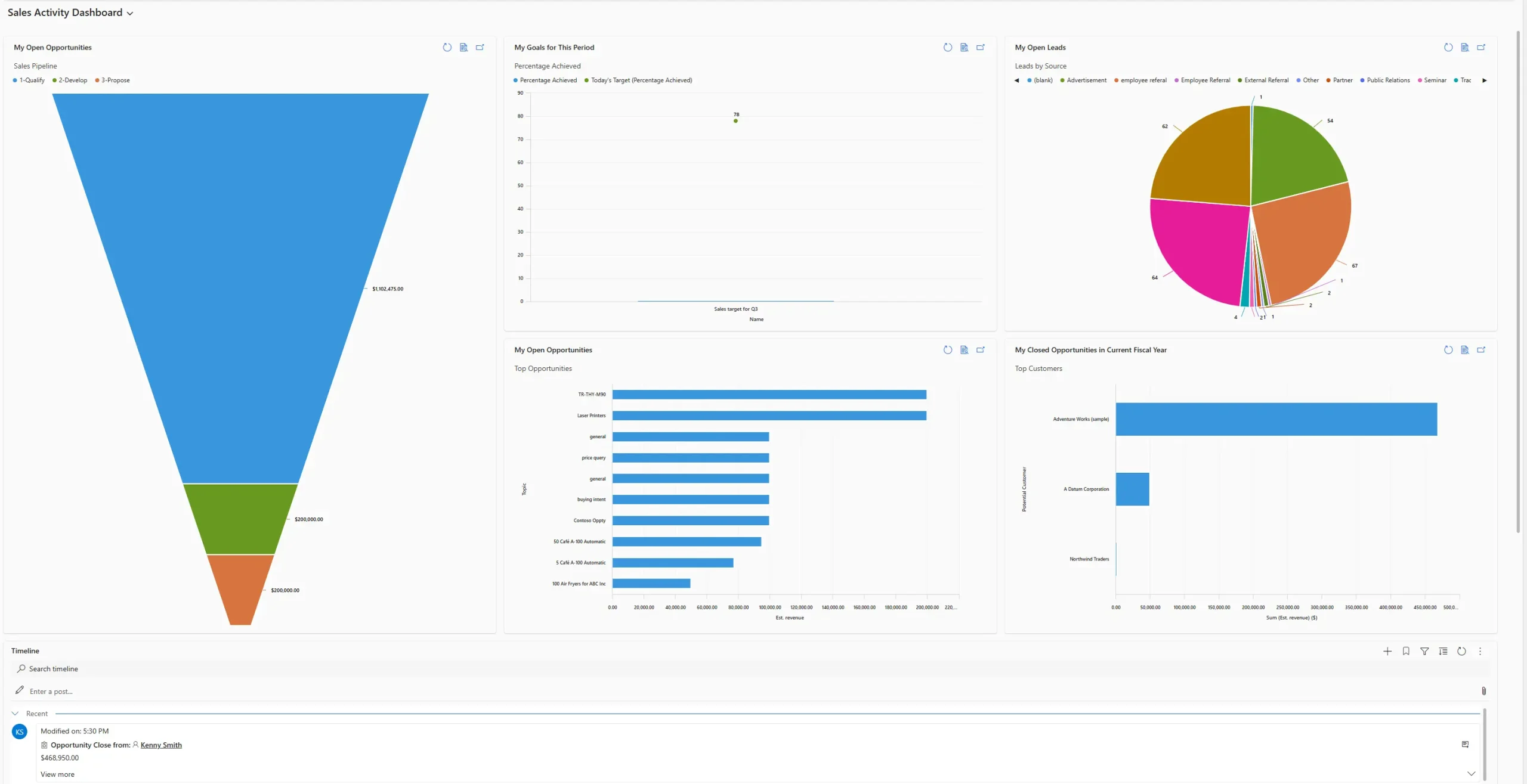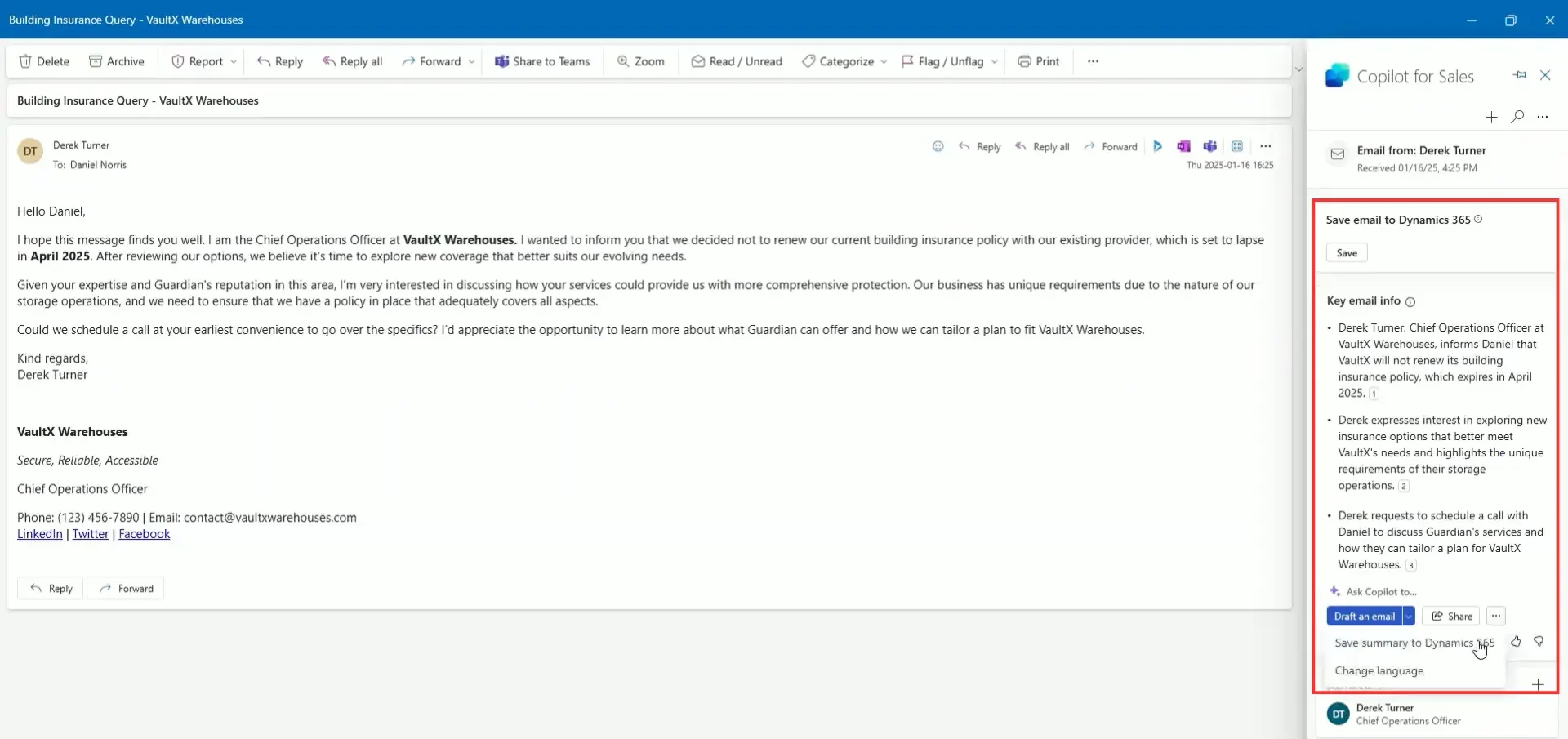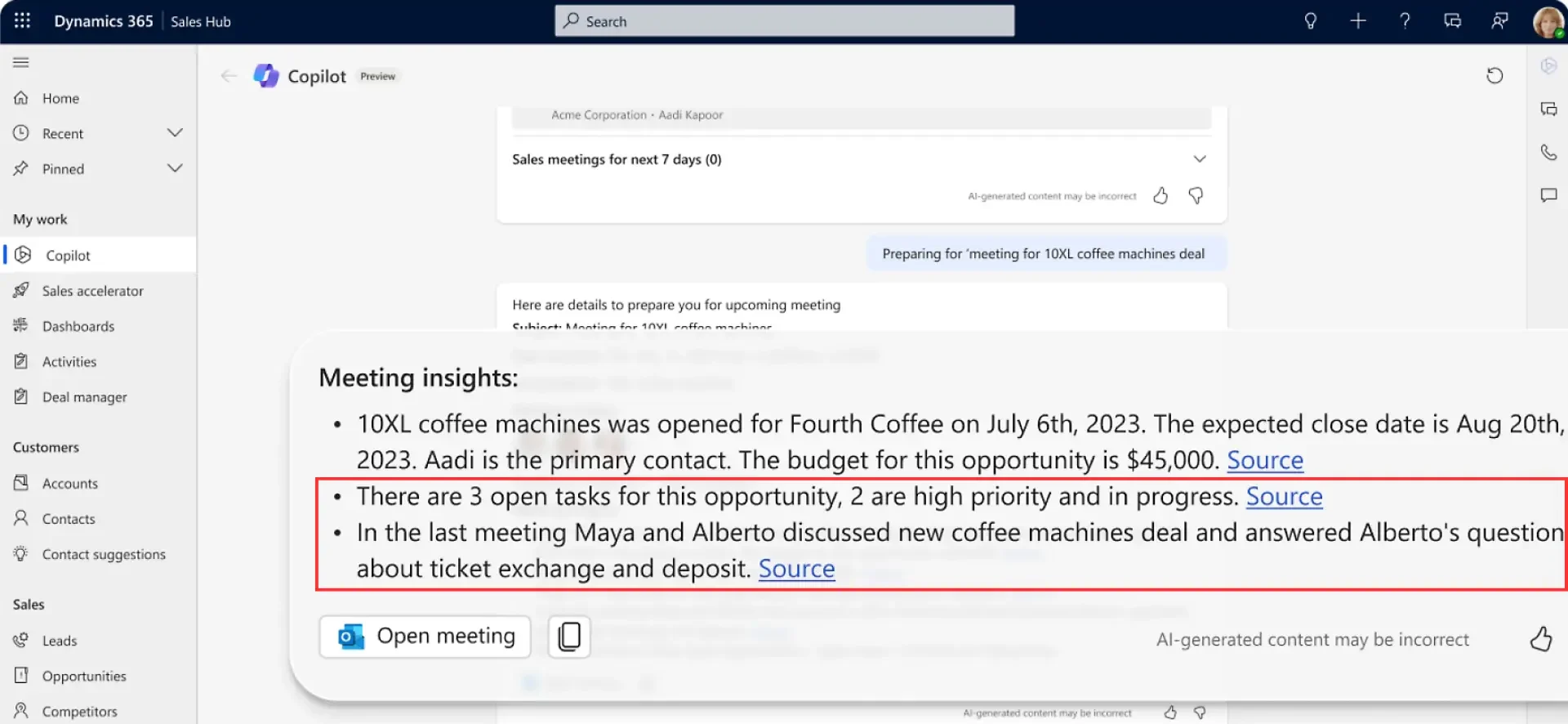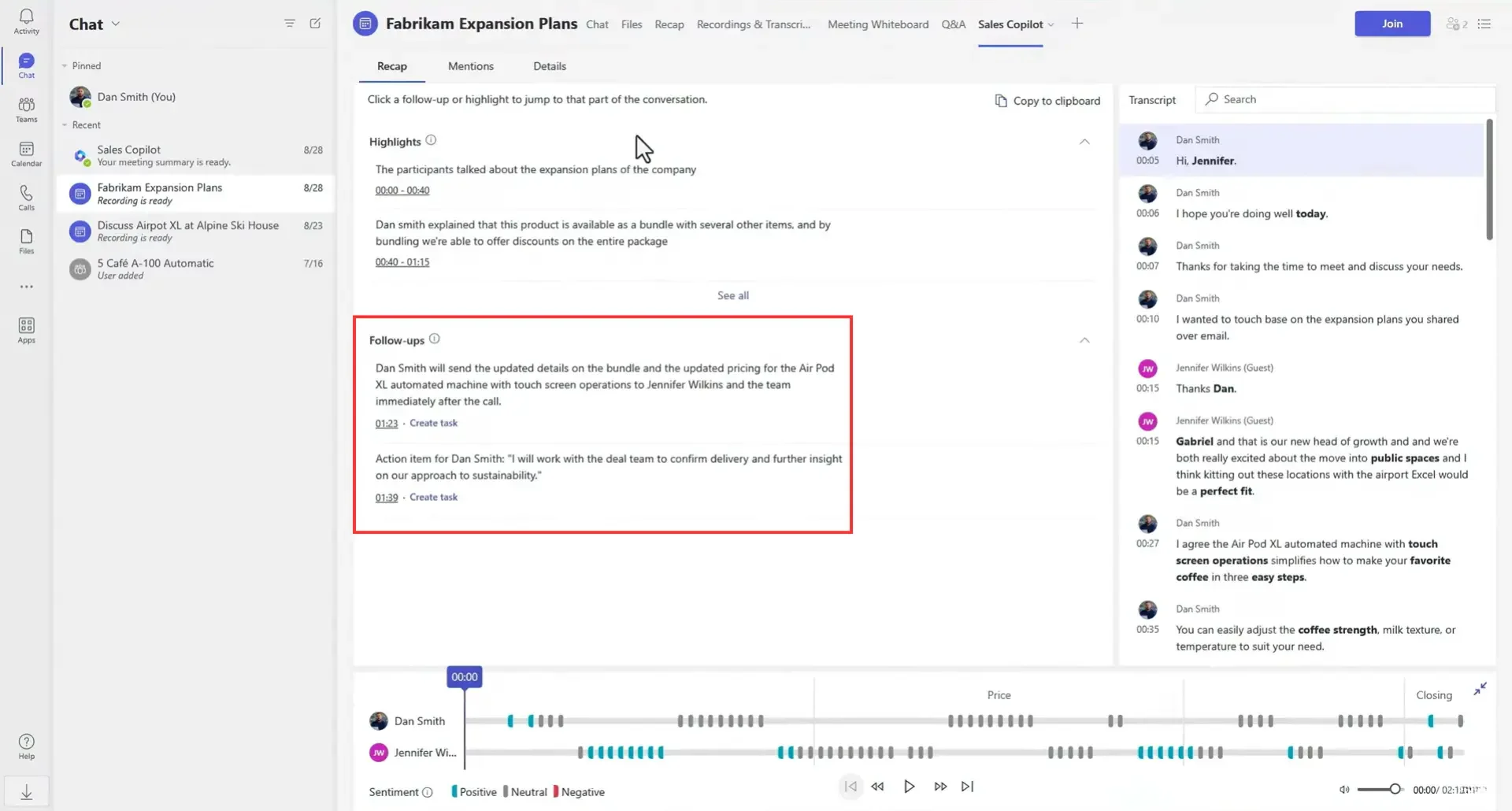Customer interactions happen everywhere. Phone calls during commutes, emails between meetings, follow-up tasks handled on mobile devices, and new contacts met at events.
These touchpoints represent valuable relationship data that can easily slip through the cracks.
Activities in Microsoft Dynamics 365 form the backbone of effective customer relationship management, yet you might be missing the potential of their full capabilities. Activity functionality has evolved into a sophisticated productivity driver beyond manual task logging.
Modern activity management combines traditional tracking with intelligent automation, AI-driven insights, and seamless integration across the Microsoft platform, which is the foundation for productivity, operational efficiency, and strong relationships.
Dynamics 365 Activity Fundamentals
You can create activities in Dynamics 365 for any record type, but they primarily represent interactions between your organisation and customers. Every phone call, email exchange, scheduled meeting, and follow-up task builds a comprehensive history of each relationship.
Dynamics 365 provides several standard activity types that cover most business scenarios. These include:
- Phone Call – log details of inbound or outbound calls.
- Email – track sent and received emails.
- Task – maintain action items or “to do” lists.
- Meeting – track scheduled meetings (in-person or online).
- Letter – track direct mail or printed correspondence.
- Campaign Response – Track leads or replies generated from marketing campaigns.
Notes also provide a space for comments, observations, and insights that don’t fit other categories.
Beyond these standard types, you can create custom activities tailored to your specific business processes. For example, a consulting firm might create “Project Review” activities, while a healthcare provider could implement “Patient Consultation” activities.
Complete interaction histories provide the value of activity management. Teams can immediately see previous conversations, outstanding tasks, and scheduled meetings in one place. This transforms reactive service into proactive relationship management, enabling more informed decisions and personalised interactions.
Activity Detail
Form fields on most standard activity types can be customised to track additional information details. The standard activity fields include:
- Phone calls: Subject, Call Direction, Description, Duration, Due Date and Priority.
- Task: Subject, Description, Due Date, Duration and Priority.
- Meeting: Required and Optional Attendees, Subject, Description, Location, Microsoft Teams Meeting (Y/N), Start/End Times, All Day Event and Duration.
Managing and Monitoring Activities
The activity list is the central hub for activity management in Dynamics 365, providing a comprehensive view of all tasks, meetings, calls, and other actions across records.
This established functionality offers various prebuilt views such as “My Activities,” “Overdue Activities,” and “Activities Due Today,” for immediate visibility into workload priorities.
Timelines
Record form timelines offer another level of activity management, displaying all interactions associated with a specific record, such as contact, account, or opportunity.
Timelines allow team members to gain context quickly with complete interaction history. You can filter timelines by criteria including activity type, date range, and completion status to focus on relevant information.
Bookmarks
You can save frequently used filter combinations with timeline bookmarks for instant access. Rather than repeatedly configuring the same filters, create bookmarks for scenarios like “Recent emails and calls,” “Open tasks,” or “Completed activities from last 30 days.”
Default bookmarks boost daily productivity by transforming multi-step filtering into a single click.
Copilot Summaries
Copilot summaries recap record timelines, offering a concise overview of recent activities and interactions without manually reviewing each entry.
Sales Worklist
The sales accelerator worklist provides sellers with a focused view of daily activities. This interface promotes high-priority tasks based on deal stages, customer importance, and timelines.
The worklist helps sellers manage their pipeline activities without getting overwhelmed by their complete activity list. Watch our demonstration of the worklist.
Outlook and Teams Access
Surfacing Dynamics 365 activities directly within Outlook and Teams reduces the distraction of constant app-switching. Users can view upcoming meetings, recent interactions, and outstanding tasks without leaving their communication tools. This integration ensures activity information remains accessible regardless of which Microsoft application you use.
Activity Queues
Queues ensure structured allocation of activities, helping distribute work efficiently across team members. Service teams can use queues to manage inbound support requests, while sales teams can distribute lead activities based on territory or expertise. Queue management ensures balanced workloads to prevent missed activities.
Bulk Activity Operations
Users can simplify administrative tasks with bulk operations to mark multiple activities as complete, reassign batches of tasks, or update activity statuses simultaneously. These capabilities are especially beneficial for handling team transitions or processing large volumes of routine activities.
Mobile Activity Management
Mobile access ensures convenient activity management regardless of location. The Dynamics 365 mobile experience includes activity creation, editing, completion, and monitoring, enabling field teams to manage their workload on the go.
Dashboards
Dashboards provide real-time access to activity insights. These customisable interfaces display activity completion rates, interaction volumes, and trend analysis across team members. These metrics can help identify bottlenecks and recognise top performers.
The Power Platform Admin Centre provides additional analytics to track Dynamics 365 activity usage and user adoption.
Creating and Scheduling Activities
While users routinely rely on Quick Create forms, timeline entries, and direct creation from the Activities list, intelligent features can streamline the process.
Copilot integration is one example of this progression. For example, you can schedule meetings directly from Outlook, with Copilot automatically checking your availability and sending invitations.
The Copilot AI assistant in Outlook provides proactive suggestions for follow-up activities based on email content and meeting outcomes. In addition to drafting an email response, Copilot will suggest follow-up tasks and save each email message and summary to the relevant Dynamics 365 record to minimise manual data entry.
Copilot summaries also reduce the effort required for meeting preparation.
These recap recent interactions, highlight open opportunities, and provide relevant account information.
Besides cutting down manual work, these auto-generated summaries promote consistent preparation, ensuring each meeting is informed and purposeful.
Integration with Microsoft Teams adds another dimension to activity management.
Following scheduled calls and meetings, Copilot will propose follow-up tasks based on your transcript and the action items you discussed.
This seamless flow from meeting to action ensures nothing gets overlooked in the transition from discussion to execution.
Email integration works both ways. You can trigger email communications from your activities, and incoming emails can automatically generate activities. This bi-directional flow creates a comprehensive record of all customer touchpoints without requiring manual intervention from your team.
Automation and Triggered Activities
Automated activity creation that responds to specific triggers and business events delivers significant productivity gains.
Power Automate
Power Automate flows can generate activities based on virtually any system change, such as lead creation or an external event, like a posted webform, transforming reactive processes into proactive engagement.
These flows can support round robin scheduling to assign tasks among users evenly, integrate approval processes for controlled actions, and enable routing based on your precise business rules. Activities like phone calls or follow-up tasks can be automatically created and assigned to reduce manual effort and maintain consistency.
Marketing Journeys
Using Dynamics 365 Customer Insights, marketing journeys can include sophisticated trigger-based activity creation.
For example, when a contact downloads a document, Dynamics can automatically create a follow-up task for the sales team to call within 24 hours. If a customer abandons an online purchase, a personalised email can be sent, or a task can be generated for customer service to reach out and help. These automated responses within the flow of a marketing journey ensure timely follow-up without requiring manual monitoring of every customer action.
Sales Sequences
You can enable similar activity automation within selling cycles.
When a potential deal reaches a specific stage, it can trigger a sequence of activities – perhaps a reminder for a presentation, a task to send a proposal and a follow-up call. This orchestrated approach achieves consistent sales processes while reducing the administrative burden on teams.
Date Triggers
Date-based activity triggers offer another powerful automation opportunity. Contract renewals, service anniversaries, and product warranty expiry can all trigger automated activity creation. For instance, a task to contact customers 60 days before contract renewal ensures proactive account management, while anniversary activities may trigger a personalised message that helps maintain long-term relationships.
AI Agents
Agents built in Copilot Studio represent the cutting edge of activity automation. These agents can operate autonomously to handle routine processes and create activities when human intervention becomes necessary. If a customer’s request falls outside the agent’s capabilities or requires special approval, it can automatically create a task for the appropriate team member, complete with context and priority level.
Completing Activities
Marking activities as complete captures additional information beyond task closure.
When you finish a phone call, you can record the time spent, add outcome notes, and set follow-up requirements.
Email activities automatically capture response times and engagement metrics. Task completion can include results achieved and lessons learned.
Bulk completion options let you process multiple finished activities, while mobile completion ensures people can close activities immediately after customer visits.
Activity completion data helps inform productivity reporting and ensures accurate time tracking for client billing.
Strategic Business Impact
Dynamics 365 activity management capabilities help teams focus efforts on productive actions.
Before picking up the phone, teams can view the complete history, including previous calls, emails sent or received, and meeting notes.
People make better decisions with complete data instead of guesswork.
Which customers need the most support? How long do different types of requests take? Which team members handle the highest activity volumes?
The answers are in your activity data, not in spreadsheets or assumptions.
When problems arise, you have proof of what happened. When you pull up the complete interaction history, customer disputes, compliance audits, and internal investigations become more manageable.
Security and Data Governance
Your Dynamics 365 security roles determine which activities team members can see, create, or modify.
Sales staff might view all account activities while customer service sees only their assigned cases. Configure permissions carefully to balance visibility with data protection requirements.
Establish clear governance rules for consistent data entry. For instance, you can define mandatory fields for different activity types and standardise outcome categories with templates.
Poor activity data will undermine your reporting and customer insights. Regular audits help identify incomplete records and training gaps, ensuring your activity history remains a reliable business asset rather than inconsistent notes.
Maximising Dynamics 365 Activity Management
Activities in Dynamics 365 are the foundation of strategic customer relationship management. Combining traditional tracking capabilities with automation and AI-powered insights creates opportunities for significant productivity gains and enhanced customer experiences.
ServerSys brings deep expertise in Dynamics 365 implementation and optimisation, helping you unlock the full potential of your Microsoft technology.
Contact us to discover how strategic activity management can drive measurable performance gains.

